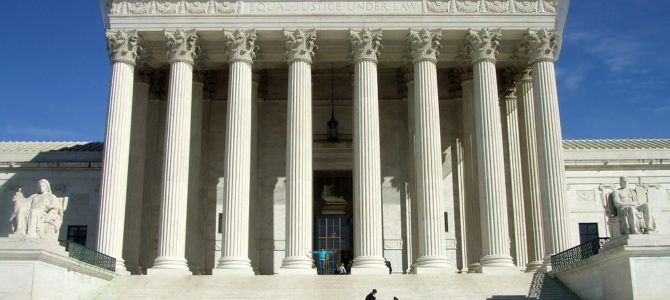The U.S. Supreme Court struck down President Joe Biden’s moratorium on residential evictions on Thursday, ruling the ban could only be extended by an act of Congress. The final ruling was 6-3, with all three Democrat-appointed justices dissenting.
“It would be one thing if Congress had specifically authorized the action that the CDC has taken,” the ruling read. “But that has not happened. Instead, the CDC has imposed a nationwide moratorium on evictions in reliance on a decades-old statute that authorizes it to implement measures like fumigation and pest extermination. It strains credulity to believe that this statute grants the CDC the sweeping authority that it asserts.”
The court later went on to conclude that “If a federally imposed eviction moratorium is to continue, Congress must specifically authorize it.”
BREAKING: The Supreme Court lifts the federal eviction moratorium. In an unsigned 8-page opinion (with the three liberals dissenting), SCOTUS sides with a group of landlords who argued that the CDC lacked the authority to bar evictions during the pandemic.https://t.co/LNrCxd7f9X https://t.co/NecnZ90zgf
— SCOTUSblog (@SCOTUSblog) August 27, 2021
Writing for the minority, Justice Stephen Breyer argued that the Centers for Disease Control’s moratorium extension was “justified by the Delta-variant surge,” and that “the modified order targets only those regions currently experiencing skyrocketing rates.”
The justice attempted to rationalize that “the public interest is not favored by the spread of disease or a court’s second-guessing of the CDC’s judgment,” and that “the public interest strongly favors respecting the CDC’s judgment at this moment, when over 90% of counties are experiencing high transmission rates.”
The Thursday ruling echoes similar sentiments from the high court back in June, in which Justice Brett Kavanaugh wrote that the CDC had “exceeded its existing statutory authority” by issuing the federal moratorium in the first place. Despite its unconstitutionality, the 5-4 majority allowed the ban to continue until its July 31 expiration date. Kavanaugh was joined by Chief Justice John Roberts, as well as Justices Breyer, Kagan, and Sotomayor.
Prior to issuing their new moratorium at the behest of far-left Democrats, however, the Biden administration originally acknowledged they had no constitutional authority to continue the federal moratorium after July 31.
“Given the recent spread of the delta variant, including among those Americans both most likely to face evictions and lacking vaccinations, President Biden would have strongly supported a decision by the CDC to further extend this eviction moratorium to protect renters at this moment of heightened vulnerability,” said White House Press Secretary Jen Psaki. “Unfortunately, the Supreme Court has made clear that this option is no longer available.”
Additionally, White House American Rescue Plan coordinator Gene Sperling told reporters during an August 2 press briefing that the president had “double, triple, quadruple-checked” every legal option to keep the moratorium in place, but acknowledged the administration had been “unable to find the legal authority for even new, targeted eviction moratoriums.”
White House American Rescue Plan Coordinator Gene Sperling tells @nancycordes that President Biden "double, triple, quadruple-checked," but has been "unable to find the legal authority" for any form of eviction moratorium with congressional authorization pic.twitter.com/fvZToVyjIo
— CBS News (@CBSNews) August 2, 2021









